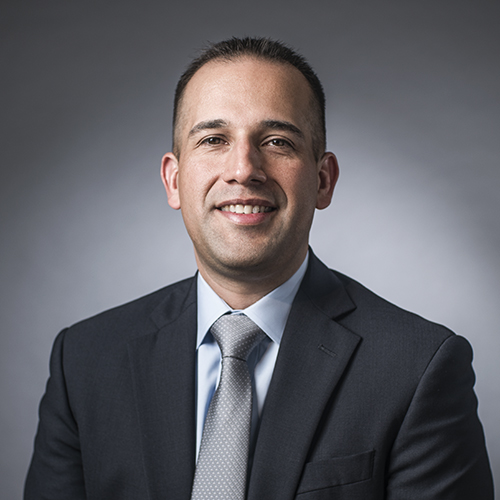|
Getting your Trinity Audio player ready...
|

Silvia Johnson was firmly established in her career as a human resources executive in the technology industry when an offhand comment by another executive crystalized her professional mission of fostering workplace diversity. “I had an executive tell me that they were surprised I didn’t have more spark in me because I was a Latina,” she says. “I was like, ‘Are you kidding me? Not all Latinas scream at each other.’”
Ironically, Johnson’s personal encounter with racial stereotypes came on the cusp of her promotion from a senior director position to vice president position at Symantec. “It has changed the way I think about certain things, and it ties back to the importance of asking people how they feel and how they are experiencing the work environment,” she says.
As an immigrant who was born in El Salvador and moved to the United States at age two with her three older siblings and her parents, Johnson brings an authentic perspective to everything in her life. In particular, she is inspired by her parents to succeed in her career of cultivating diversity in the workplace.
“Growing up, my parents constantly reminded us that they brought us here to flourish and thrive and have the best life possible,” she says.
Through data-driven analysis, employee engagement, freedom within a framework, and inclusive recruitment practices, Johnson has built a personal brand as a human resources professional and a professional speaker.
At Symantec Corporation, a Fortune 500 global cybersecurity company with more than one hundred offices in forty-three countries, Johnson was responsible for strategically managing the company’s makeup. She enhanced diversity among Symantec’s twelve thousand employees with quantitative and qualitative initiatives, including a series of surveys and executive roadshows, where she traveled internationally meeting with Symantec managers and employees from different areas. “It’s about having a pulse internally within the company,” she says.
She emphasizes the importance of measuring all aspects of diversity, equity, and inclusion in the workplace at both a macro and micro level. “You can’t go to the CEO with a gut instinct about deficiencies,” she says. “You need data. Sometimes the problem is not with the big company processes but rather what’s happening at the micro level.”
At Symantec, Silvia found, through data and honest conversations, several microlevel issues that were hindering the recruitment and retention of a diverse talent pool. For example, she worked on something as simple as improving the company’s website content to better represent its inclusive corporate culture. “We have to acknowledge that people have different personalities and value sets,” she says. “I believe human resources executives should talk to employees, ask the tough questions, and present those findings to your executive leadership.”
Johnson has also built her career on developing workplace policies that she says gave employees freedom within a framework. “Employees are not just there to churn and burn,” she says. “They have multidimensional lives, so the challenge is to create environments where they can flourish. As a human resources executive, I have to think about what the company wants to achieve and how it’s going to operate and hold employees accountable to those guidelines and structures.”
On the recruitment side, Johnson has re-envisioned the criteria and resources in the search for a diverse talent pool. “Relying solely on the company’s employee referral program limits diversity because you end up with like-minded people,” she says. “Also, putting artificial criteria in place, such as requiring high grade point averages or degrees from top-tier schools for candidates, becomes a funnel problem limiting diversity. I’m a great example because I graduated with a 2.7 GPA from University of California–Davis, yet I would venture to say that I’m more successful than some of those other candidates with higher grades because I’m scrappy and wanted to work hard.”
At the outset of her career, after she graduated with a degree in psychology, Johnson worked at Macy’s, where she was responsible for the recruitment and coordination of seasonal employees. “I had a love for psychology, but I realized—after an internship with a psychotherapist—this was not the kind of work that I wanted to do,” she says. “I talked to mentors, teachers and somehow this thread of human resources came up because it’s about helping people in a corporate setting.”
Johnson has advanced in her field by embracing the “80/20 rule,” an economic principle known as the Pareto Principle that posits 20 percent of the input creates 80 percent of the result. “I’m always prioritizing and focusing on that 20 percent,” she says. “That’s why we saw big results at Symantec in the diversity space because we were laser-focused on the 20 percent that made the biggest difference.”
In June 2018, however, Johnson left Symantec for a lifestyle change and to move to Lake Tahoe.
As she weighs new career opportunities, Johnson is working toward a master of fine arts in creative writing at Sierra Nevada College; she plans to write a book for human resource executives on how to best influence for positive change in the employee experience. In addition, she has aspirations to write young adult fiction from an immigrant’s vantage point. And as an expert on diversity in the workplace, she is also busy on the speaker’s circuit in addition to mentoring, doing podcasts, and continuing to push the diversity agenda forward.
At the end of the day, Johnson knows she isn’t the only one enjoying a thriving career inspired by the work ethic her immigrant parents instilled in the family. Her three older siblings also have successful careers in science and technology fields. Her late father, a teacher in El Salvador, worked janitorial jobs, and her mother, once a homemaker, cleaned houses, worked in the kitchen at United Airlines, and also worked janitorial jobs to provide for their children in the United States.
“We are highly successful by any standards, let alone that of immigrants,” she says. “Immigrants do contribute to the society and can be role models to other immigrants. They bring diversity of thought, experience, culture, values, and upbringing that enhances a company performance in this global economy.”

